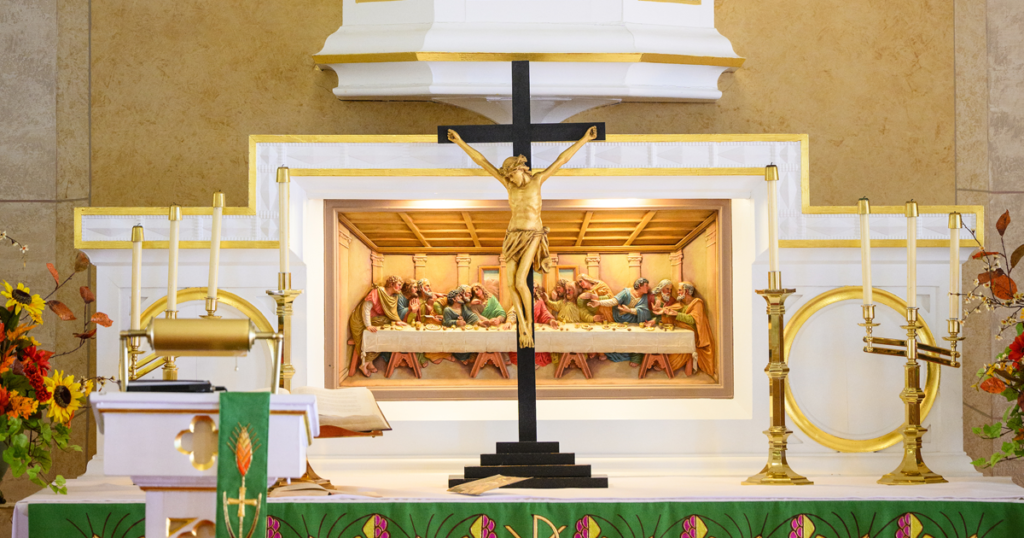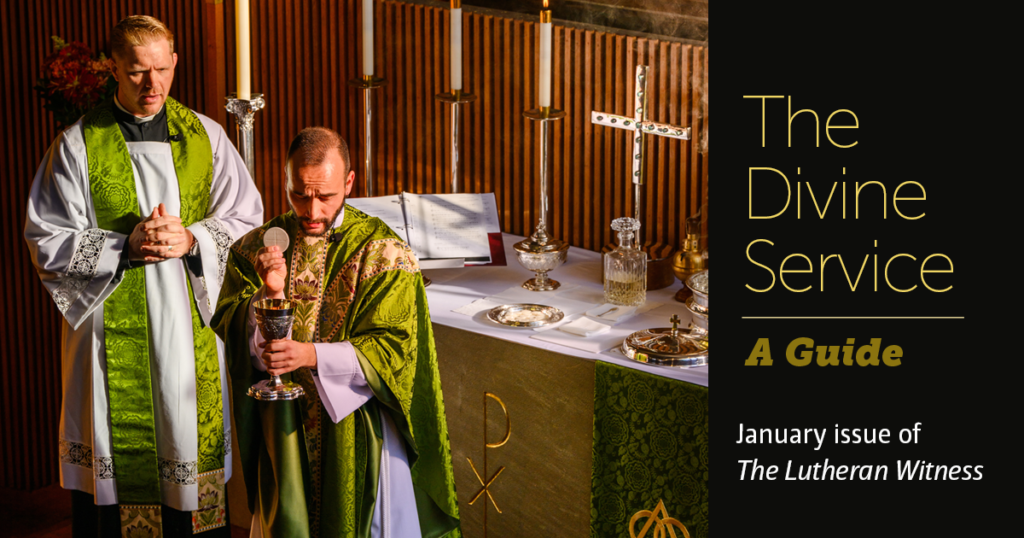by Leah Bromen
One topic parents care deeply about is the education of their children. Yet, modern education is moving farther and farther from parental desires and student needs. Many parents are concerned with one or more challenges in their child’s school, whether it be failure to meet their child’s learning needs, underperformance, overly high academic demands, ideological indoctrination, a lack of resources to develop a child’s particular skills, or threats to their child’s safety. These familial needs and desires have led to parents seeking alternative means and methods of education. One of the methods gaining traction is microschooling.
A generational investment
As the educational challenges facing families grow in number and breadth, Lutheran churches have the wonderful opportunity to continue to open Lutheran schools to meet some of those needs, serving as “an arm of mission and ministry” of the church. The Lutheran Church—Missouri Synod (LCMS) has a long history of doing just that. In fact, when the LCMS was founded, every church was required to provide a school for educating the church’s children. Luther reminds us, “When schools flourish, things go well and the church is secure. … God has preserved the church through schools.”1
Even today, strengthening education is one of the seven mission priorities of the LCMS. Lutheran schools prepare students for the right-hand kingdom by integrating the Gospel into every aspect of the school, while also equipping students for their vocations in the left-hand kingdom, where they serve their neighbors. Through Lutheran schools, our churches make a generational investment which, by the grace and providence of God, preserves the church, serves families and creates virtuous citizens, cultivating a profound impact on all three estates.
A time of great opportunity
In the last four years, many parents obtained an in-depth view of their children’s education through online learning and pandemic-related schooling at home. This glimpse highlighted the ideological shifts happening in schools, as well as the quality of education being offered. Through these experiences, more parents than ever have begun seeking choices regarding their children’s learning environment.
Along with freedom of choice, parents are also seeking out moral instruction, better discipline, and school models that prioritize family life, values and like-minded community. Lutheran churches have an incredible opportunity to offer education that is distinctly biblical, cultivates virtue and upholds the vocation of parents while delivering excellent academics.
Parental desires have caused exponential growth in educational alternatives. As public school enrollment has decreased by 18%, private, microschool and homeschool enrollments have all increased. Many people are familiar with private schooling and have become more so with homeschooling. However, microschooling is a form of education with which many are not as well acquainted.
Microschooling: a viable option for LCMS churches
In this new landscape of educational choice, microschooling is a viable and suitable prospect for many LCMS congregations.
While small, multi-family learning environments have been around for many years, the changing educational landscape has caused a surge of new microschools. As the name implies, microschools serve a smaller set of students, usually between 10 and 60, and can be arranged for homeschooling, private schooling or hybrid schooling (a mix of home and group schooling). While microschools vary, most employ multi-age learning, where students of varying ages learn together. Older students model maturity and glean healthy review from the material covered with younger students, while younger students respect and admire the commendable actions of the older students and receive a preview of future studies.
Microschools’ small class and school sizes also provide lower student-to-teacher ratios and an environment where students and staff know each other well. Smaller class sizes allow for more personalized attention for students — each child can spend more time interacting with the teacher and have more opportunities to share his work, allowing the teacher to notice and meet the educational needs of each student.
Some microschools operate five days a week, while increasingly more are following a hybrid model in which students spend two or three days in the school community, with the other days at home. While five-day-a-week education has been common for Lutheran schools, the hybrid model of learning fits our Lutheran theology well, with our emphasis on the vocation of parents. The features of microschools — small class sizes, an intimate number of staff, and as few as three or four learning spaces due to multi-age learning — cause them to be a popular choice for parents and churches across the spectrum of urban, rural and suburban areas.
An option for almost any congregation
There is a demand for more schools, with private schooling growing 7% and homeschooling growing 51% in the last five years. In the next 20 years, private schooling is predicted to increase by another one to two million students, homeschooling is estimated to grow by two to three million students, and microschooling is anticipated to add one to two million students.2
Lutheran churches with even a small amount of space — three or four rooms — can launch or host a microschool. This may take many forms. With the explosive demand for educational choice, parents and educational leaders are being creative in their microschool environments.
Churches and others are meeting educational needs by offering opportunities such as: tutoring services which supplement public school, homeschool, or private schooling learning; homeschool co-ops where parents gather to teach subjects and provide extracurricular content to their own children and other families’ children; apprenticeships provided to students by congregational members or to meet vocational needs within the church; coursework in entrepreneurship; lessons in the arts, which may be challenging to obtain elsewhere; training in homesteading skills such as gardening, food preparation, animal care, home care and survival skills; and educational resource centers which provide resources for further learning. The possibilities are endless and customizable.
In spite of our expansive network of LCMS schools, many Lutheran children do not have the opportunity to attend an established Lutheran school near them. In this era where parents are realizing they have agency and educational choices, Lutheran churches without existing schools nearby can take the initiative to provide what is needed through microschools. They do not require a multi-million-dollar investment, a large building, or copious numbers of children to offer these blessings of Lutheran education which parents desire.
As Lutheran churches, we can aid families in meeting the educational needs of their children. Doing so blesses families, fulfills our mission and makes a generational investment with eternal consequences.
1 Martin Luther, “Table Talk No. 5557,” Luther’s Works, Vol. 54, p. 425.
2 Soaring Education Services, “Best Practices in Ministry” breakout session, Phoenix, Ariz., 2024.
Image: LCMS Communications/Erik M. Lunsford






I read the article with great interest and wholeheartedly believe in the potential of microschools to transform educational opportunities within our synod. My extensive background in this emerging field, including my charter membership in the National Hybrid Schools Society and my fellowship at the Arizona State University Microschool program, provides me with a unique and comprehensive understanding of the microschool model.
Furthermore, my current hands-on experience leading a successful microschool at Holy Cross in Cary, IL, as a rostered teacher, gives me practical insights into the day-to-day operations and challenges involved in establishing and running such programs. This experience, combined with my theoretical knowledge and network within the microschool community, positions me to effectively lead the information and setup phase for our synod.
Micro schooling sounds a lot like the one room schoolhouse concept that I grew up with. It involved various levels of learning from Kindergarten to eighth grade. Younger students were tutored by older students and many activities were multi-level. Science walks, recess time, Christmas programs, singing songs, saying the pledge, cleaning up work areas, and listening to story time and visiting speakers were combined activities.
Recently, I had the experience of trying to convert a very small, struggling traditional Lutheran school into a microschool. It did not work. In essence, I was the only one who ever thought it was a good idea. A large part of that came down to a lack of useful information about what a microschool is, how it works, and a framework for how to open one. What we need is for someone somewhere in the synod to make a 7-12 minute video showing how a microschool works day-to-day, and maybe write some kind of informational booklet that serves as a complimentary resource to help educate people. Then, we might get some microschools. People need to know what it is and how to do it step-by-step, though. Currently, “microschool” feels like a buzzword, and not a viable project for a congregation. People need to be able to learn more about them.
As retired Lutheran school teachers who have volunteered in Classical Christian schools and also taught in public schools, we couldn’t agree with you more. Although my husband and I have no experience with micro-schools, I’d like to learn more about how and where they’ve been successful.
I agree that we need more formal information from Synod about microschools. Information for parents and churches on how to start and host a parent Co-op would also be beneficial. I am a homeschooling mother of 3 young children. I have many other friends with young families that end up seeking out Evangelical, Roman Catholic, or Orthodox Parent Co-ops because we as Lutherans do not have much for published resources or encouragement from Synod and our congregations.